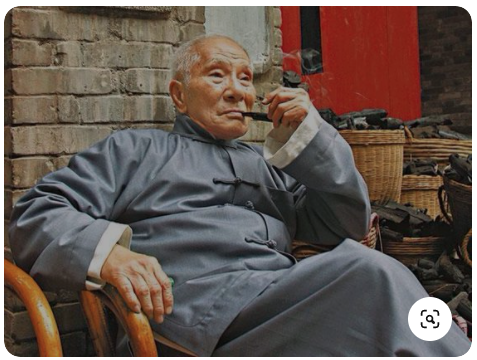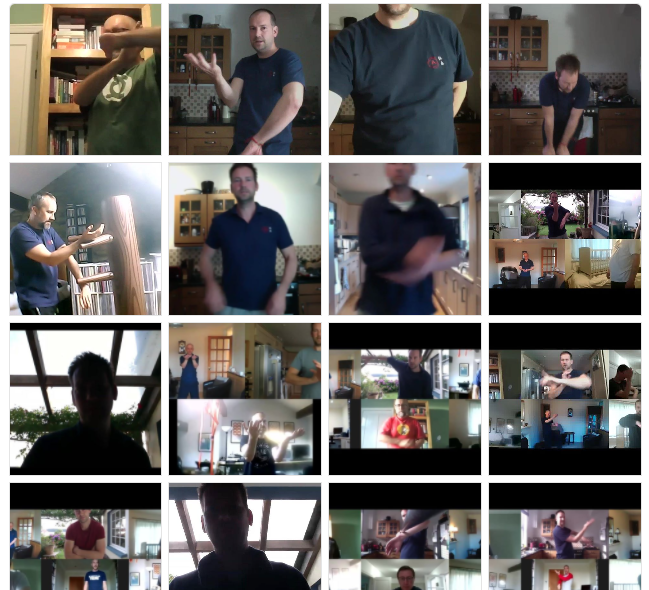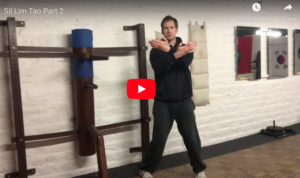One of the things I’ve taken from studying Wing Chun is to remain calm in adversity. In chi sau, losing your temper or reacting with aggression is something your partner can use against you, particularly if you flare up when getting hit! It also doesn’t help you respond appropriately and spontaneously when necessary. Your anger gets in the way of choosing the right technique, or letting your body choose. When you’re calm in chi sau, things can operate much more smoothly. Getting riled up can affect your skill level and you’ll more easily tense muscles and become less sensitive to what’s happening in the moment.

Take that same analogy and use it in daily life and you can learn from it. An example is driving your car through traffic. Watch yourself react to other road users. Do you get easily riled up and become aggressive? Does that help you or simply raise your blood pressure and put you in a negative state of mind – which can ruin the rest of your day. Small mini aggressions can completely ruin your day over the course of a few hours if you allow them to affect your calm state of mind.
Keeping Calm Is Your SuperPower – An Analogy
Here’s an analogy I heard. Imagine there is a bank that every morning deposits $86,400 into your account. Someone steals $10 from you. Would you get upset and throw all of the $86,390 away in your anger? Yet this can be what we do to our state of mind at the slightest hint of adversity or personal slight. There is such a bank and we all have 86,400 seconds in every day. Do you want to let someone’s negative 10 seconds ruin the rest of the 86,390?
Ip Chun is an advocate of preserving a positive internal state, and has talked about not letting anything affect his state of mind throughout the day. He attributes his good health in old age (now 96) to this mindset and of course practicing Wing Chun and staying fit physically for years. “If you want to reach my age, don’t let anyone annoy you. It harms your body when you get angry.” – Ip Chun
Of course Wing Chun also allows you to gain confidence in extreme physical conditions and under physical attack. But it also gives you confidence in threatening situations which most would be more disturbed by. If you are able to remain calm and measured in such circumstances, you can calm situations down much more easily without ever needing to resort to physical violence. Knowing you have it in reserve can give you this power. If you were more easily unnerved by verbal threats of violence and posturing, during a conflict, you would be much more likely to become disturbed by such a conflict and entangled further into the argument. You would react negatively and potentially enrage an aggressor further, until physical conflict is inevitable.
Keeping Calm Is Your Superpower – Stop Fighting
The Chinese character “mu” that is translated into the word “martial”, literally means “to stop fighting” or “to put down weapons.” The word “arts” in martial arts points to skill, expression of beauty or creativity. The combination “martial arts” may be interpreted to mean ending conflict skilfully. Peace is the ultimate goal of the martial arts.
So by remaining calm during conflict, you can end disputes more peacefully, without the use of violence. It can also help you live more peacefully and therefore longer!
Problem De Escalation + Avoidance
A friend of mine runs problem avoidance and de escalation for various services in the UK. Studies were conducted around the violence towards health care staff. They put staff members through training of de escalation and conflict resolution. They also trained staff in breakaway techniques and some combat training. What they found was than in the cases where they gave people just training in fighting/combat, it raised the levels of physical altercations, rather than lowering them. Staff trained in some fighting skills wanted to “try them out” and so entered into conflict much more easily. With de-escalation techniques trained the levels of physical altercations were lowered.
What lowered altercations even more was when staff got training in both de escalation and hands on techniques. With only de escalation theory while under the duress of threat of physical attack, your body language can give away your levels of fear and uncertainty, which can draw more aggression.
A little bit of fighting training can make you more likely to enjoy the idea of getting embroiled in a physical altercation and you may even seek one to try out your new skills!
Getting both de escalation and problem avoidance training along with some martial techniques can give you a more rounded approach when it comes to dissolving and minimising aggression when it’s about to spill over into a physical altercation.
Knowing you can handle something can give you a calm superpower! Still, it’s also worth knowing that training doesn’t make you superhuman, and anyone can have an off day. Better to not take the chance if a problem can be dissolved before it gets started! Perhaps that’s the real skill of a proficient martial artist..
A beginner martial artist might think “can I take him”, whereas a more experienced practitioner might think “how can I not trigger him and dissolve the problem without violence“.
“Before I do anything, or go anywhere I think about whether someone will annoy me. I am in my 90’s now, I still haven’t thought about retiring. I will keep teaching until I can’t.” – Ip chun

For more information on classes please visit Leeds Wing Chun.


